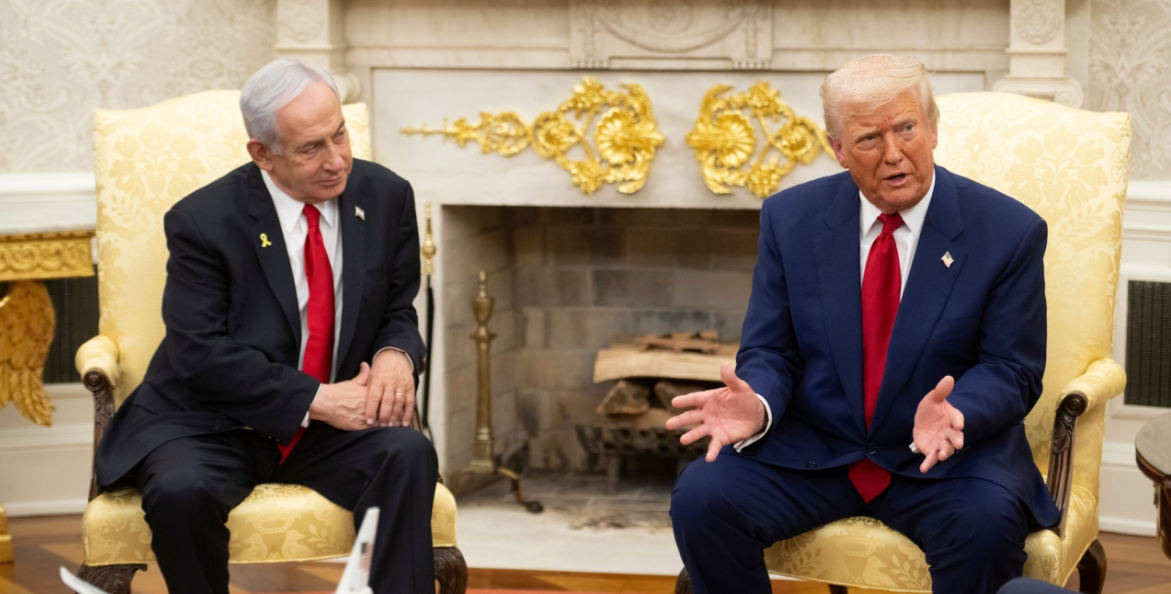Is Israel an American Province?

A more independent Israeli foreign policy toward Washington would improve both the US and Israeli positions in the Middle East.-
Has Israel evolved from an independent nation-state into something resembling a province within an American informal empire? The question is uncomfortable for both American and Israeli elites, but it demands serious consideration. The answer is more nuanced than either the defenders of the “special relationship” or its most strident critics would acknowledge. Still, the evidence suggests a relationship that increasingly resembles imperial dependency rather than a strategic partnership.

The Architecture of Israeli-US Dependency
Consider the structural realities. Israel receives approximately $3.8 billion in annual military assistance from the United States—more than any other country. This aid comes with strings attached, not just in the form of requirements to purchase American weapons systems, but in the deeper integration of Israel’s military-industrial complex with American defense contractors. Israeli defense procurement decisions are made not in Jerusalem but increasingly in consultation with—or at the behest of—Washington.
Beyond the financial dimension lies a more fundamental dependency: Israel’s diplomatic isolation in international forums is countered almost exclusively by American protection. Whether at the United Nations Security Council, the International Criminal Court, or various other multilateral institutions, Israel relies on American vetoes, American pressure, and American diplomatic cover to shield it from international censure and sanctions. Without this protection, Israel would face a level of isolation that would fundamentally constrain its freedom of action.
The Loss of Israeli Strategic Autonomy
The relationship has progressively eroded Israel’s strategic autonomy in ways that mirror classical imperial relationships. Israeli military operations require at least tacit American approval. Major foreign policy initiatives—from potential strikes on Iranian nuclear facilities to normalization agreements with Arab states—are coordinated with, and often choreographed by, Washington. When Israel has attempted to act independently, as in some settlement expansion efforts or proposed arms sales to China, American pressure has proven decisive in reversing course.
This represents a marked departure from earlier periods of Israeli history. Prime Minister David Ben-Gurion’s generation understood that Israel needed great power support, but they also maintained relationships with multiple powers and preserved meaningful independence in decision-making. Today’s Israel has become increasingly monogamous in its great power relationships, putting all its eggs in the American basket at precisely the moment when American hegemony faces unprecedented challenges.
The Rhetoric of Partnership, the Reality of Hierarchy
Defenders of the current arrangement insist on characterizing the relationship as a partnership between equals, or even as one where Israel provides more value to America than it receives. This narrative—popular in both Washington policy circles and among Israeli officials—obscures the fundamental hierarchy at work. Partners negotiate; provinces petition. Partners can disagree without existential consequences; the client states risk abandonment.
The language itself reveals the relationship’s true nature. Israeli officials speak of the “friendship” and “support” of the United States not as one of many diplomatic relationships but as essential to national survival. This is not the language of partnership but of dependency. When Israeli president Shimon Peres acknowledged that “for our existence we need the friendship of the United States of America,” he was articulating a client state’s recognition of patron power, not a partner’s appreciation of an ally.
The Costs of Israel’s Provincial Status
This semi-imperial relationship exacts costs that are rarely acknowledged in mainstream discourse. First, it limits Israel’s diplomatic flexibility at a time when the international system is becoming increasingly multipolar. As American power wanes relative to rising powers like China, India, and regional actors, Israel finds itself constrained in developing relationships with these emerging centers of influence. Washington’s concerns about Israeli technology transfers to China or Israeli neutrality regarding Russia demonstrate how provincial status restricts independent foreign policy.
Second, unconditional American support has arguably weakened Israeli statecraft. When a client state knows it will be protected from the consequences of its actions, it loses the discipline that comes from navigating international relations without a net. The West Bank settlements, military operations with high civilian casualties, and the rejection of diplomatic initiatives all occur within a context where American protection is assumed rather than earned.
Third, the relationship creates a moral hazard for American foreign policy. The United States finds its diplomatic leverage in the Middle East compromised by its unconditional support for Israeli positions. Arab and Muslim-majority countries view Washington not as an honest broker but as Israel’s attorney and guardian. This perception damages American interests and reduces American influence precisely when sophisticated diplomacy is most needed in a region undergoing profound transformation.
Perhaps most troubling is what happens to imperial dependencies when their empire enters its twilight phase. American relative decline is no longer a hypothesis but an observable reality. The military overextension in Iraq and Afghanistan, the financial crisis and its aftermath, the rise of China as a peer competitor, and the growing political dysfunction in Washington all point to an America with diminishing capacity to maintain far-flung commitments.
What happens to provinces when the empire retreats? History suggests that client states often find themselves abandoned or, worse, caught in the crossfire of great power competition. Israel’s monogamous relationship with American power looks increasingly risky in a world where American dominance can no longer be assumed.
How Israel Can Escape Provincial Status
The alternative is not anti-Americanism or the severing of ties with Washington. Instead, it requires Israel to develop the kind of strategic autonomy that characterized earlier Zionist diplomacy. This means diversifying relationships with multiple power centers, reducing dependence on American military aid (which constrains as much as it enables), and developing independent diplomatic capabilities.
The Abraham Accords demonstrated that Israel can achieve diplomatic breakthroughs through regional engagement rather than sole reliance on American mediation. The growing relationship with India, the maintenance of complex ties with Russia, and even the careful management of economic relations with China all point toward a more mature, multidimensional foreign policy.
Israel’s founders understood that survival required skillful navigation of great power politics without becoming beholden to any single patron. Ben-Gurion balanced British, American, and even Soviet support in Israel’s early years. That tradition of strategic flexibility has atrophied as Israel has settled into the comfortable but ultimately constraining role of the American client.
Toward a Genuine US-Israel Partnership
The US-Israel relationship exhibits many characteristics of imperial dependency: financial reliance, diplomatic protection, loss of strategic autonomy, and the language of existential dependence. Yet it differs from classical imperial relationships in important ways—there is no direct American governance, and Israel maintains significant domestic autonomy.
Perhaps the most accurate characterization is that Israel occupies a space somewhere between formal alliance and informal rule—a client state with unusual privileges but a client state nonetheless. For Israelis and Americans who value genuine partnership and Israeli independence, this should be cause for concern and reconsideration.
The real question is not whether Israel has become a province, but whether it can transition back to genuine strategic autonomy before the American empire’s inevitable retrenchment leaves it dangerously exposed. The longer Israel remains in a semi-provincial relationship, the more painful and difficult that transition becomes. History shows that provinces rarely choose independence until after the empire has departed—and by then, the choices available are far more constrained and far more costly.
The time for Israel to reassert strategic autonomy is now, while American power remains substantial enough to make the transition manageable rather than traumatic. This requires uncomfortable conversations in both Jerusalem and Washington. However, such conversations are preferable to the rude awakening that inevitably comes when empires decline and provinces are left to fend for themselves.
- Questions and Answers
- Opinion
- Motivational and Inspiring Story
- Technology
- Live and Let live
- Focus
- Geopolitics
- Military-Arms/Equipment
- Securitate
- Economy
- Beasts of Nations
- Machine Tools-The “Mother Industry”
- Art
- Causes
- Crafts
- Dance
- Drinks
- Film/Movie
- Fitness
- Food
- Jocuri
- Gardening
- Health
- Home
- Literature
- Music
- Networking
- Alte
- Party
- Religion
- Shopping
- Sports
- Theater
- Health and Wellness
- News
- Culture

